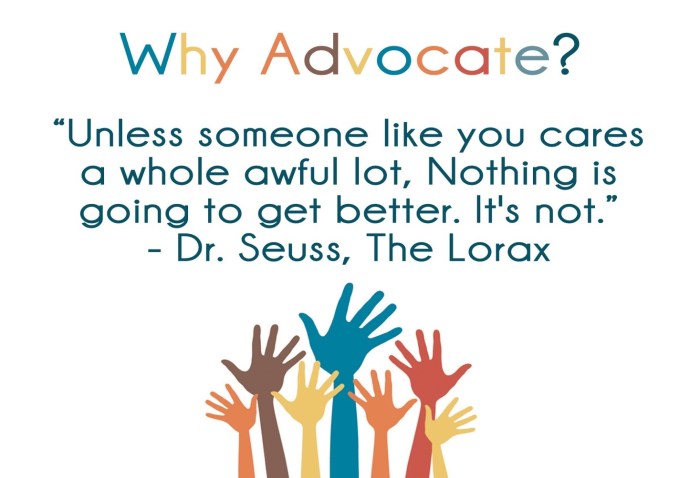One who fights for and promotes engaged citizenry – Advocates for engaged citizenry play a pivotal role in fostering civic engagement and empowering citizens to actively participate in democratic processes. Their tireless efforts to promote inclusivity, overcome barriers, and leverage technology have a profound impact on community development, social cohesion, and economic growth.
By advocating for policies that support civic education, providing resources for citizen engagement, and mobilizing communities around shared goals, advocates empower citizens to become active agents of change and contribute to the betterment of society.
Definition of Engaged Citizenry: One Who Fights For And Promotes Engaged Citizenry

Engaged citizenry refers to individuals who actively participate in the political and civic life of their communities. They are informed about public affairs, engage in political discourse, and work towards the betterment of society. Engaged citizens possess a strong sense of civic responsibility and believe in the power of collective action to address community challenges.
They are committed to making a positive difference in their communities and promoting the common good.
Role of Advocates in Promoting Engaged Citizenry
Advocates play a crucial role in fostering civic engagement and empowering citizens. They raise awareness about important issues, mobilize communities, and provide support to individuals who want to make a difference. Advocates use various strategies to promote engaged citizenry, such as organizing public forums, conducting workshops, and launching social media campaigns.
They also work with policymakers to create policies that support civic participation and empower citizens.
Barriers to Engaged Citizenry
Several factors can prevent individuals from becoming engaged citizens. These include social barriers, such as lack of education or access to resources; economic barriers, such as poverty or job insecurity; and political barriers, such as voter suppression or gerrymandering. These barriers disproportionately affect marginalized communities, limiting their ability to participate fully in civic life.
Strategies for Enhancing Civic Engagement, One who fights for and promotes engaged citizenry
Various strategies can be implemented to enhance civic engagement. These include:
- Voter education and registration drives:Empowering citizens with the knowledge and resources they need to participate in elections.
- Community organizing:Mobilizing residents to address local issues and advocate for change.
- Civic education programs:Providing citizens with the knowledge and skills they need to be informed and engaged.
- Social media campaigns:Using social media to connect with citizens, raise awareness about issues, and encourage civic action.
Impact of Engaged Citizenry on Society
Engaged citizenry has a profound impact on society. It contributes to community development, social cohesion, and economic growth. Engaged citizens are more likely to volunteer, donate to charities, and participate in community events. They are also more likely to be informed about public affairs and to hold their elected officials accountable.
Role of Technology in Promoting Engaged Citizenry
Technology has emerged as a powerful tool for promoting civic engagement. Social media platforms, online forums, and mobile applications provide citizens with new avenues for participation. Technology can facilitate citizen-to-citizen communication, enable collective action, and provide access to information and resources.
General Inquiries
What is the role of technology in promoting engaged citizenry?
Technology can facilitate citizen participation through online platforms, social media, and mobile applications that provide access to information, enable communication, and support community organizing.
How can barriers to engaged citizenry be overcome?
Overcoming barriers requires addressing social and economic inequalities, providing accessible civic education, and promoting inclusive policies that empower marginalized communities.


